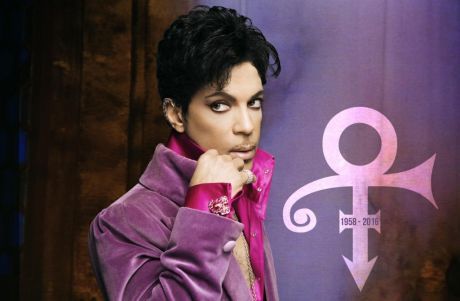Obituaries
You are here
Remembering Prince’s life and politics

April 25, 2016
In reaction to Prince’s passing many mainstream press focused on how many records he sold, but for his fans it was the combination of his musical talents and his politics that caused such an outpouring of emotion. Whereas the press is obsessed with how he died, we want to remember how he lived.
Prince pioneered wildly popular fusion of pop, rock, and funk, but never took on the mantle of a celebrity artist—choosing instead to live in his home city of Minneapolis (and a home in Toronto). He embraced sexuality through his performances and lyrics, in a gender non-conforming way that challenged conventions and encouraged people to be themselves—as he sang in 1984, “I’m not a woman. I’m not a man. I’m something that you’ll never understand.”
One of his many innovations was the highly visible role he gave to women as the musicians in his band. Traditionally women were only backup singers or backup dancers, or not visible at all. Their presence as highly talented musicians was something of a first in this genre of music.
A turbulent period in his career was the latter part of his relationship with Warner Brothers. Unwilling to allow him to exit his contract, Prince deliberately subverted their power by changing his name to an unprintable and unpronounceable symbol (which merged the traditional symbols for male and female), and writing "slave" on his face to protest his conditions. His popularity despite this change forced the mainstream media to begin calling him “the artist formerly known as Prince.” His management sent out floppy discs with the symbol/font loaded onto it, so that papers could print articles with his correct name. As a member of the American Federation of Musicians for 40 years, he also supported the musician's rights more broadly.
Prince, a Jehova’s Witness, refrained from publicising his acts of charity due to his religious convictions. Though he never sought recognition, he was a strong supporter of the Black Lives Matter movement. He devoted a benefit concert in Baltimore to the movement in memory of the murder of Freddy Gray, and introduced last year’s Album of the Year at the Grammy’s by stating, “Albums, like books and black lives, still matter—tonight and always.” Prince also used his success to support others, including radical female musicians such as Janelle Monae and Erika Badu.
For the benefit concert, Prince wrote a song called “Baltimore.” In it he honours the memory of Michael Brown and Freddy Gray and the BLM movement fighting anti-Black racism:
“Nobody got in nobody's way
So I guess you could say it was a good day
At least a little better than the day in Baltimore
Does anybody hear us pray
For Michael Brown or Freddie Gray?
Peace is more than the absence of war
If there ain't no justice then there ain't no peace.”
Section:









